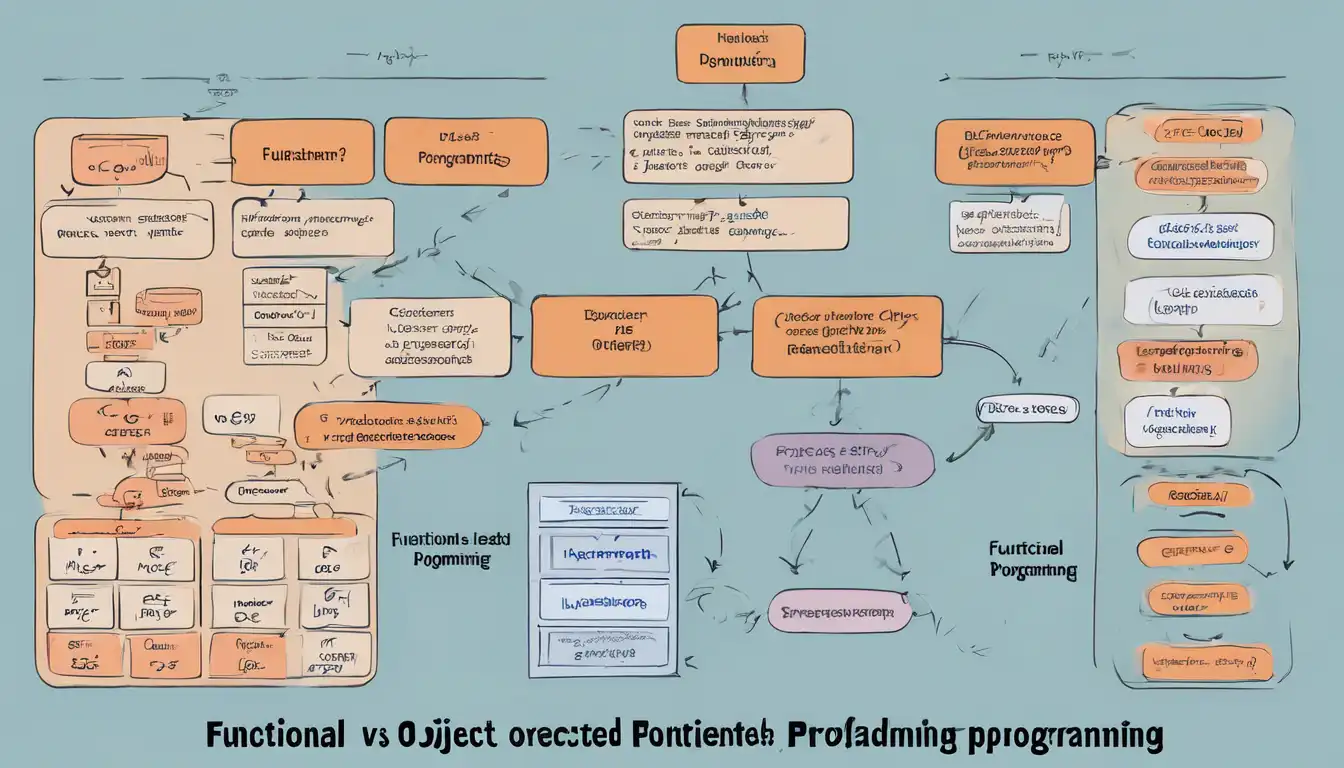Introduction to Programming Paradigms
In the world of software development, understanding the differences between functional programming (FP) and object-oriented programming (OOP) is crucial for choosing the right approach for your project. Both paradigms offer unique advantages and can significantly impact the efficiency, readability, and scalability of your code.
What is Functional Programming?
Functional programming is a paradigm that treats computation as the evaluation of mathematical functions and avoids changing-state and mutable data. It emphasizes the application of functions, in contrast to the imperative programming style, which emphasizes changes in state.
- Immutability: Data is immutable, meaning it cannot be changed after it's created.
- First-class functions: Functions are treated as first-class citizens, allowing them to be passed as arguments, returned from other functions, and assigned to variables.
- Pure functions: Functions have no side effects and return the same output for the same input.
What is Object-Oriented Programming?
Object-oriented programming is a paradigm based on the concept of "objects", which can contain data, in the form of fields, and code, in the form of procedures. OOP focuses on the objects that developers want to manipulate rather than the logic required to manipulate them.
- Encapsulation: Bundling of data with the methods that operate on that data.
- Inheritance: The mechanism of basing an object or class upon another object or class, retaining similar implementation.
- Polymorphism: The ability to present the same interface for differing underlying forms (data types).
Comparing Functional and Object-Oriented Programming
When deciding between FP and OOP, consider the nature of your project and the problems you're trying to solve. FP is often favored for mathematical computations, data processing, and situations where immutability is key. OOP, on the other hand, is ideal for large, complex systems that are actively maintained and updated, as it organizes code into manageable, modular components.
Performance Considerations
Functional programming can offer performance benefits in certain scenarios due to its emphasis on immutability and pure functions, which can lead to more predictable code and easier debugging. However, OOP can be more intuitive for modeling real-world entities and relationships, making it a better choice for many business applications.
Choosing the Right Paradigm
Ultimately, the choice between functional and object-oriented programming depends on the specific requirements of your project. Many modern programming languages, such as JavaScript and Python, support both paradigms, allowing developers to leverage the strengths of each as needed.
For more insights into programming paradigms, check out our guide on programming paradigms.
Conclusion
Both functional and object-oriented programming have their place in software development. By understanding the core principles and advantages of each, developers can make informed decisions that best suit their project's needs. Whether you prefer the mathematical purity of FP or the structured approach of OOP, mastering both paradigms will make you a more versatile and effective programmer.
